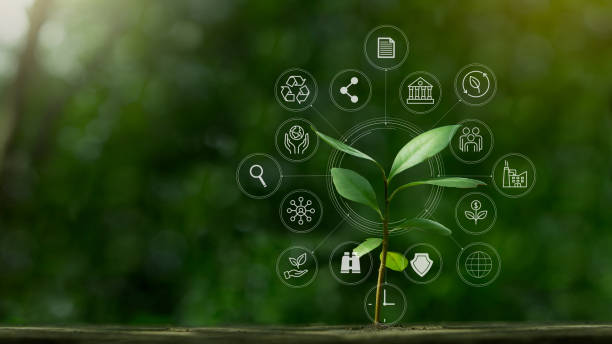
The global ecological crisis affects everyone. It also affects the legally relevant relationships between people, and between people and things. In the face of climate change and limited success with long-standing efforts to protect the natural resource base, there is increasing emphasis on how important it is for various role-players to understand, apply, comply with and enforce environmental law. This is true for countries in the Global North and South and for public authorities and private sector actors alike.
Environmental law is multi-layered and rooted in various kinds of legal sources at the international, regional and domestic level. Its typical sources include international law (treaties etc.), domestic constitutional law, statutory law, judicial decisions, indigenous law and common law. Environmental law is further a ‘hybrid’ field of law meaning that it is impossible to label it as a purely ‘private law’, ‘mercantile law’ or ‘public law’ subject – it spans all these legal fields. In the South African context, environmental law is embedded in dedicated environmental law instruments (e.g. the constitutional environmental right and environmental legislation), but it is also situated in administrative law, criminal law, law of contract, land-use planning law, law of delict, cultural heritage law, company law, procurement law, constitutional law (e.g. the law regulating local government and procedural rights), insurance law and socio-economic rights. Environmental legislation in South Africa deals with a host of environmental sectors including water, air quality, waste, pollution, hazardous substances, biodiversity, the coastline, the oceans, protected areas, environmental health and climate change.
This module is an ‘apex’ module in the LLB curriculum where many of the legal principles you have studied the past couple of years, finally come together. This module aims to introduce the LLB student to the field of environmental law – its origins, scope and design, its key principles and the way in which it has been developed in the courts over the years. The module focuses on select aspects of South African environmental law and creates the basis for potential future specialisation in environmental law at LLM or LLD level.
Environmental law is multi-layered and rooted in various kinds of legal sources at the international, regional and domestic level. Its typical sources include international law (treaties etc.), domestic constitutional law, statutory law, judicial decisions, indigenous law and common law. Environmental law is further a ‘hybrid’ field of law meaning that it is impossible to label it as a purely ‘private law’, ‘mercantile law’ or ‘public law’ subject – it spans all these legal fields. In the South African context, environmental law is embedded in dedicated environmental law instruments (e.g. the constitutional environmental right and environmental legislation), but it is also situated in administrative law, criminal law, law of contract, land-use planning law, law of delict, cultural heritage law, company law, procurement law, constitutional law (e.g. the law regulating local government and procedural rights), insurance law and socio-economic rights. Environmental legislation in South Africa deals with a host of environmental sectors including water, air quality, waste, pollution, hazardous substances, biodiversity, the coastline, the oceans, protected areas, environmental health and climate change.
This module is an ‘apex’ module in the LLB curriculum where many of the legal principles you have studied the past couple of years, finally come together. This module aims to introduce the LLB student to the field of environmental law – its origins, scope and design, its key principles and the way in which it has been developed in the courts over the years. The module focuses on select aspects of South African environmental law and creates the basis for potential future specialisation in environmental law at LLM or LLD level.
- Facilitator: Anel Du Plessis
- Facilitator: RUMBIDZAI LAURA Mapani
- Facilitator: GABRIELLA MUNESU Mashiki
- Facilitator: CHARL HILL Otto
- Facilitator: Oliver Ruppel
- Facilitator: Candice Williams
